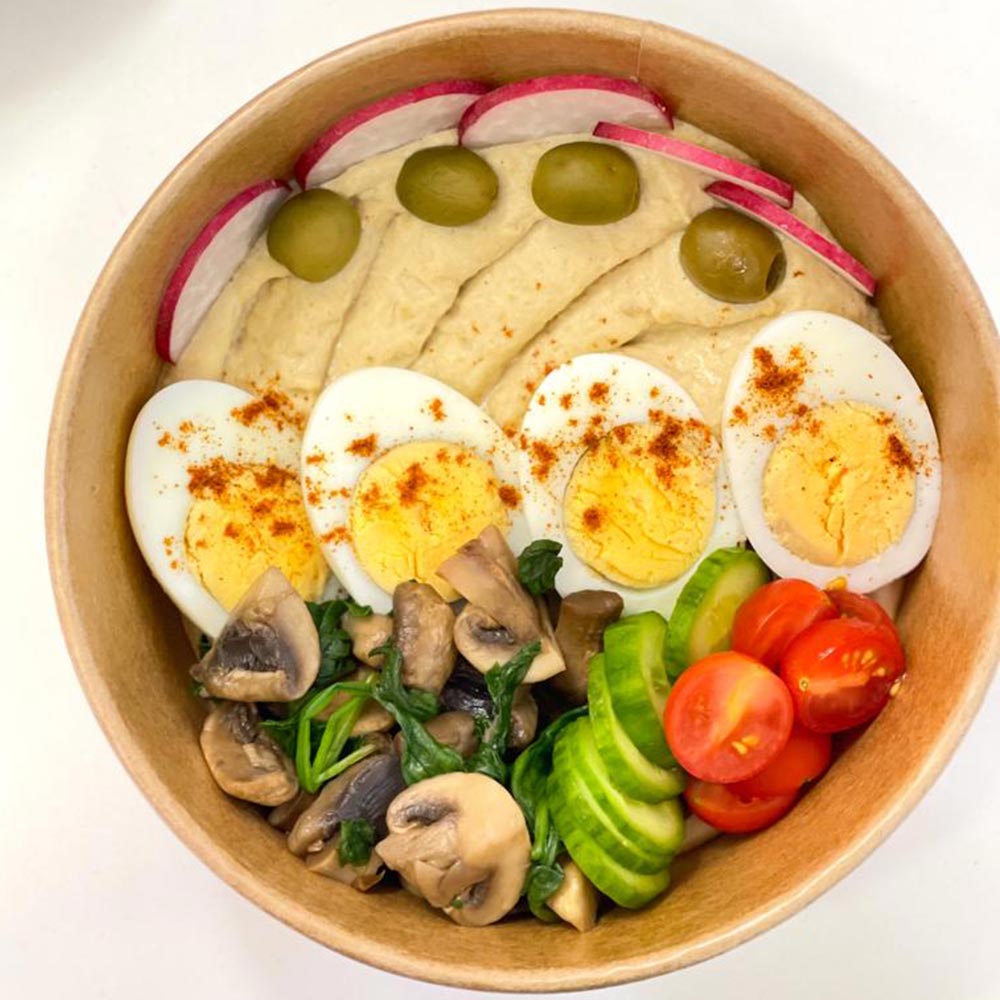In the contemporary fast-paced world, maintaining a balanced
diet can be challenging. However, the emergence of healthy meal plan companies
has revolutionized how we approach nutrition, offering expertly crafted meal
plans that cater to individual health goals. These companies provide
convenience and expertise, ensuring that each meal is nutritionally balanced and
tailored to specific dietary needs. This article delves into the intricacies of
these meal plans, exploring their benefits, the science behind their design,
and real-world examples of their effectiveness.
The Rise of Healthy Meal Plan Companies
The concept of healthy meal plan companies has gained
significant traction over the past decade. This growth can be attributed to
increasing health awareness, busy lifestyles, and the desire for convenience
without compromising nutritional value. According to a report by Grand View
Research, the global meal kit delivery service market size was valued at USD
10.26 billion in 2020 and is expected to expand at a compound annual growth
rate (CAGR) of 13.0% from 2021 to 2028. This rapid growth highlights the demand
for convenient, healthy eating solutions.
Convenience Meets Nutrition
One of the primary advantages of using a healthy meal plan company is the
convenience it offers. These companies eliminate the need for meal planning,
grocery shopping, and cooking, which can be time-consuming activities. Instead,
customers receive pre-portioned ingredients or fully prepared meals that are
ready to eat or require minimal preparation. This convenience is particularly
beneficial for busy professionals, parents, and anyone with a hectic lifestyle.
Moreover, these meal plans are designed by nutrition experts
who ensure that each meal is balanced and meets specific dietary requirements.
Whether the goal is weight loss, muscle gain, or managing a health condition
such as diabetes, these plans are tailored to provide the necessary nutrients
without excess calories or harmful additives.
Scientific Basis for Meal Plans
The creation of effective meal plans is grounded in
scientific principles of nutrition and dietetics. Nutritionists and dietitians
use various tools and methodologies to design these plans, ensuring they align
with dietary guidelines and individual health goals.
Macronutrients and Micronutrients
A balanced diet includes the right proportions of
macronutrients (proteins, fats, and carbohydrates) and micronutrients (vitamins
and minerals). Proteins are essential for muscle repair and growth, fats are
crucial for brain health and hormone production, and carbohydrates provide energy.
Vitamins and minerals support various bodily functions, including immune
response and bone health.
For instance, a meal plan for an individual aiming to build muscle would emphasize protein-rich foods such as lean meats, legumes, and dairy products. Conversely, a plan for someone looking to lose weight might focus on high-fiber foods like vegetables, fruits, and whole grains to promote satiety while controlling calorie intake.
7-day meal plan that is simple, healthy, and delicious:
Monday:
- Breakfast: Overnight oats with banana and almond milk
- Lunch: Grilled chicken salad with mixed greens, veggies,
and whole grain crackers
- Dinner: Quinoa and black bean bowl with roasted veggies
and avocado
Tuesday:
- Breakfast: Greek yogurt with berries and granola
- Lunch: Whole grain pita with hummus, cucumber, and tomato
- Dinner: Baked salmon with sweet potato and green beans
Wednesday:
- Breakfast: Smoothie bowl with spinach, banana, and almond
milk
- Lunch: Turkey and avocado wrap with mixed greens and whole
grain tortilla
- Dinner: Grilled chicken and veggie stir-fry with brown
rice
Thursday:
- Breakfast: Scrambled eggs with whole grain toast and mixed
berries
- Lunch: Lentil soup with whole grain bread and a side salad
- Dinner: Grilled turkey burger with sweet potato fries and
mixed greens
Friday:
- Breakfast: Avocado toast with scrambled eggs and cherry
tomatoes
- Lunch: Grilled chicken Caesar salad with whole grain
croutons
- Dinner: Slow cooker chili with quinoa and mixed veggies
Saturday:
- Breakfast: Omelette with mushrooms, spinach, and whole
grain toast
- Lunch: Grilled chicken and quinoa bowl with roasted
veggies and tzatziki sauce
- Dinner: Baked cod with roasted asparagus and brown rice
Sunday:
- Breakfast: Breakfast burrito with scrambled eggs, black
beans, and avocado
- Lunch: Turkey and cheese sandwich on whole grain bread
with carrot sticks and hummus
- Dinner: Grilled chicken and veggie skewers with quinoa and
peanut sauce
Remember to stay hydrated by drinking plenty of water
throughout the day. Also, feel free to swap out ingredients and interchange
different protein sources, veggies, and whole grains to keep things interesting
and tailored to your personal preferences.
Real-World Examples: Success Stories with Healthy Meal Plans:
Numerous individuals have experienced positive changes by
subscribing to healthy meal plans:
- Sarah (32): A busy professional, Sarah struggled with
unhealthy takeout habits due to a lack of time for meal planning. A healthy
meal plan company helped her rediscover the joy of cooking and provided her
with delicious, balanced meals that fit her busy schedule.
- David (55): Looking to manage his blood pressure and
cholesterol levels, David subscribed to a plan featuring heart-healthy meals
rich in fruits, vegetables, and lean protein. He noticed a significant
improvement in his health markers within a few months.
- Emma (28): Aiming to lose weight while adhering to a vegan
diet, Emma found it challenging to plan nutritious meals on her own. A healthy
meal plan company provided her with delicious, plant-based meals that helped
her achieve her weight loss goals without sacrificing taste or variety.
Future Trends in Healthy Meal Plan Companies
As the demand for healthy meal plan companies continues to
grow, several emerging trends are likely to shape the future of this industry.
These trends reflect a deeper integration of technology, a greater focus on
sustainability, and an emphasis on personalized nutrition.
Integration of Artificial Intelligence and Machine Learning
Artificial Intelligence (AI) and Machine Learning (ML) are
set to revolutionize the meal planning industry. These technologies can analyze
vast amounts of data to identify patterns and predict individual dietary needs
with high accuracy. For instance, AI can track a user’s food preferences,
dietary restrictions, and health goals to suggest meal plans that are not only
nutritious but also appealing to their taste buds. This level of
personalization can enhance user satisfaction and adherence to meal plans.
Expansion of Plant-Based and Alternative Protein Options
The growing interest in plant-based diets and alternative
protein sources is another significant trend. Companies are increasingly
offering meal plans that feature plant-based proteins, such as legumes, tofu,
and tempeh, as well as innovative alternatives like lab-grown meat and insect
protein. This shift is driven by both health and environmental concerns, as
plant-based diets are associated with lower risks of chronic diseases and have
a smaller ecological footprint compared to animal-based diets.
Sustainability and Eco-Friendly Practices
Sustainability is becoming a crucial consideration for
consumers and companies alike. Healthy meal plan companies are adopting
eco-friendly practices to reduce their environmental impact. This includes
using biodegradable or recyclable packaging, sourcing ingredients from local
and organic farms, and minimizing food waste through precise portioning.
Additionally, some companies are exploring carbon offset programs and
partnerships with environmental organizations to further their sustainability
efforts.
Emphasis on Mental Health and Wellness
There is a growing recognition of the link between diet and
mental health. Future meal plans are likely to incorporate foods that support
cognitive function and emotional well-being. Nutrients such as omega-3 fatty
acids, antioxidants, and vitamins like B12 and D are known to influence brain
health. By including these nutrients in their meal plans, companies can offer
solutions that address both physical and mental health.
Customization Based on Genetic Testing
Genetic testing for personalized nutrition is an emerging
field that holds great promise. Companies like 23andMe and AncestryDNA provide
genetic testing services that can reveal insights into an individual's unique
genetic makeup, including predispositions to certain health conditions and
nutritional needs. Healthy meal plan companies can leverage this data to create
highly customized meal plans that align with a person’s genetic profile,
optimizing their health outcomes.
Integration with Wearable Technology
The integration of meal plans with wearable technology, such
as fitness trackers and smartwatches, is another trend on the horizon. These
devices can monitor various health metrics, including physical activity, heart
rate, and sleep patterns. By syncing with meal plan apps, users can receive
real-time dietary recommendations that complement their lifestyle and fitness
goals. This holistic approach can enhance the effectiveness of meal plans and
promote overall wellness.
Focus on Gut Health
Gut health is a critical aspect of overall well-being, and
its importance is increasingly recognized in the field of nutrition. Future
meal plans are likely to focus on promoting a healthy gut microbiome through
the inclusion of probiotics, prebiotics, and fiber-rich foods. By supporting
gut health, these meal plans can improve digestion, boost immunity, and even
enhance mood and cognitive function.
Community and Social Engagement
Healthy meal plan companies are also exploring ways to build
a sense of community among their users. This can be achieved through social
features in their apps, such as forums, challenges, and support groups, where
users can share their experiences, recipes, and tips. Creating a supportive
community can motivate users to stick to their meal plans and foster a culture
of healthy living.
Real-Time Feedback and Adaptation
Real-time feedback and adaptation are becoming increasingly
important in personalized nutrition. Healthy meal plan companies are developing
tools that allow users to provide immediate feedback on their meals, which can
then be used to adjust plans. This iterative process ensures that meal
plans remain aligned with the user’s preferences and health goals, enhancing
satisfaction and long-term adherence.
Choosing the Right Healthy Meal Plan Company:
With a multitude of healthy meal plan companies in the
market, selecting the right one requires careful consideration:
1. Dietary Needs and Preferences: Choose a company that offers
plans catering to your specific dietary needs, whether it's vegan, gluten-free,
or calorie-controlled.
2. Delivery Area and Convenience: Ensure the company delivers
within your area and offers convenient delivery options that fit your
lifestyle.
3. Ingredient Quality and Sourcing: Prioritize companies that
use fresh, high-quality ingredients and source them sustainably whenever
possible.
4. Reviews and Customer Satisfaction: Read online reviews and
testimonials to gauge customer experiences and satisfaction with the company's
service.
Beyond the Meal Plan: A Holistic Approach to Wellness
While healthy meal plans offer a valuable tool for dietary
improvement, they are one piece of the puzzle. A holistic approach to wellness
also includes:
1. Regular Physical Activity: Combining healthy eating with
regular exercise is essential for overall physical and mental well-being.
2. Mindful Eating: Developing mindful eating practices like
practicing gratitude and chewing food thoroughly leads to greater enjoyment and
improved satiety.
3. Adequate Sleep: Adequate sleep is crucial for regulating
hormones that control appetite and metabolism.
Conclusion:
Healthy meal plan companies are a valuable resource for
individuals seeking a convenient and personalized solution to promote a
healthier lifestyle. By providing balanced, nutritious meals and eliminating
the stress of meal planning, these companies empower individuals to focus on,
these companies empower individuals to focus on other aspects of their
well-being. However, it's important to remember that healthy meal plans should
be viewed as a stepping stone on the journey to long-term dietary habits. As
individuals become comfortable with the meal plans and the principles behind
them, they can gradually develop their healthy cooking skills and meal planning
strategies.
The Future of Healthy Meal Plans
The future of healthy meal plans is brimming with exciting
possibilities:
1. Advanced Personalization: Artificial intelligence and
machine learning could be used to personalize meal plans further, adapting to
individual taste preferences, health goals, and even real-time biometric data.
2. Smart Kitchen Integration: Seamless integration with smart
kitchen appliances could guide users through recipes, adjust cooking times
based on ingredients, and even suggest meal pairings for an even more
convenient and personalized experience.
3. Sustainability Focus: Companies are likely to place a
greater emphasis on sustainable sourcing practices, minimizing food waste, and
using eco-friendly packaging materials.
Empowering Choices for a Healthier You
Healthy meal plan companies offer a valuable tool for
individuals seeking to take control of their health and well-being. By opting
for scientifically sound plans with fresh, high-quality ingredients,
individuals can experience the numerous benefits of a balanced diet. Remember,
healthy meal plans are a stepping stone, empowering you to develop long-term
healthy habits and a sustainable relationship with food. So, ditch the decision
fatigue, explore the options offered by healthy meal plan companies, and embark
on your journey towards a healthier, happier you!






























